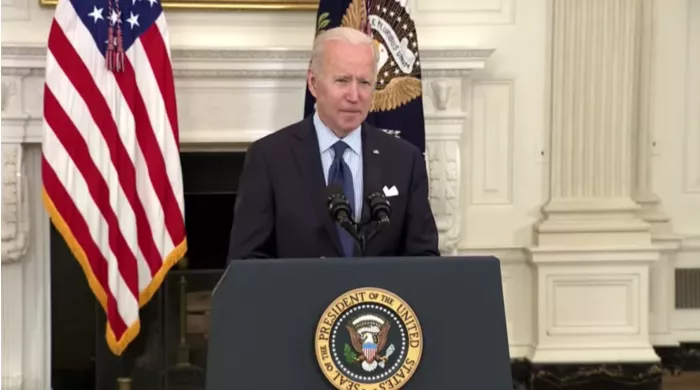According to two independent new studies, the United States has done quite badly in fulfilling its commitments to address climate change A global ranking of countries completed by Yale University and Columbia University found that the United States now ranks 43rd among the 180 countries assessed by Columbia University and Yale University in their latest environmental performance index (EPI) This is a sharp drop since researchers last ranked countries in 2020, when the United States ranked 24th.

In terms of climate indicators alone (the assessment also takes into account the progress of countries in other types of pollution and efforts to protect ecosystems), the United States has dropped from the previous 15th to 101st. The New York Times reported the ranking of the United States on Tuesday, and the full text of the EPI will be released tomorrow.
Although US President Biden promised to eliminate enough pollution within this decade to prevent the world from falling into a deeper climate crisis, a recent paper published in the journal Science found that the United States is far off track in achieving its goal of reducing carbon emissions. The United States will need to make great efforts to transform the country's power and transportation systems in order to get on track.
The New York Times reported that the latest EPI reflects the change of Donald Trump's climate policy from 2017 to 2019. During his administration, trump canceled dozens of environmental regulations and withdrew the United States from the landmark Paris Agreement. The Paris Agreement requires almost all countries in the world to commit themselves to reducing emissions, aiming to control the global average temperature rise below 2 degrees Celsius (measured by the increase compared with the pre industrial era). Studies have shown that a rise of 2 degrees Celsius in the global average temperature will bring devastating losses to ecosystems and people who depend on them.
Biden made a new commitment to the Paris agreement almost immediately after taking office. But since then, his efforts to pass legislation to move the United States more quickly to clean energy have been hampered in Congress. Last year, Biden promised that by the end of this century, the United States' carbon dioxide emissions would be reduced by at least 50% compared with 2005 levels. This is in line with the conditions required globally to achieve the objectives of the Paris Agreement.
But this is not in line with the actual situation. According to an analysis published in the journal Science last week, the current policy is expected to reduce energy emissions in the United States by only 6-28% by 2030.
The authors of the paper studied six major energy and economic models to describe the conditions required for the United States to truly meet its commitment to halve emissions. The consensus of all six models is that in order to achieve the set emission targets, the national power grid and transportation system of the United States need to be thoroughly reformed. The United States needs more of its economy to run on electricity from clean sources such as wind and solar energy. The model believes that coal also needs to basically disappear from the country's power sector. Wind and solar power also need to grow two to seven times faster than in the past decade.
The Biden administration has taken action to phase out fuel consuming cars, but it is not active enough. Biden signed an executive order last year, proposing that half of all new cars sold in the United States by 2030 will be hybrid or electric vehicles. According to the new document, by 2030, nearly 70% of the newly sold vehicles need to be electric vehicles.
Due to the decline in renewable energy prices and the corresponding decline in per capita energy use, the United States' greenhouse gas emissions have decreased over time. But according to the lead author of the science article, the pace of greenhouse gas reduction in the United States needs to be tripled to meet Biden's carbon emission reduction target of 50%.